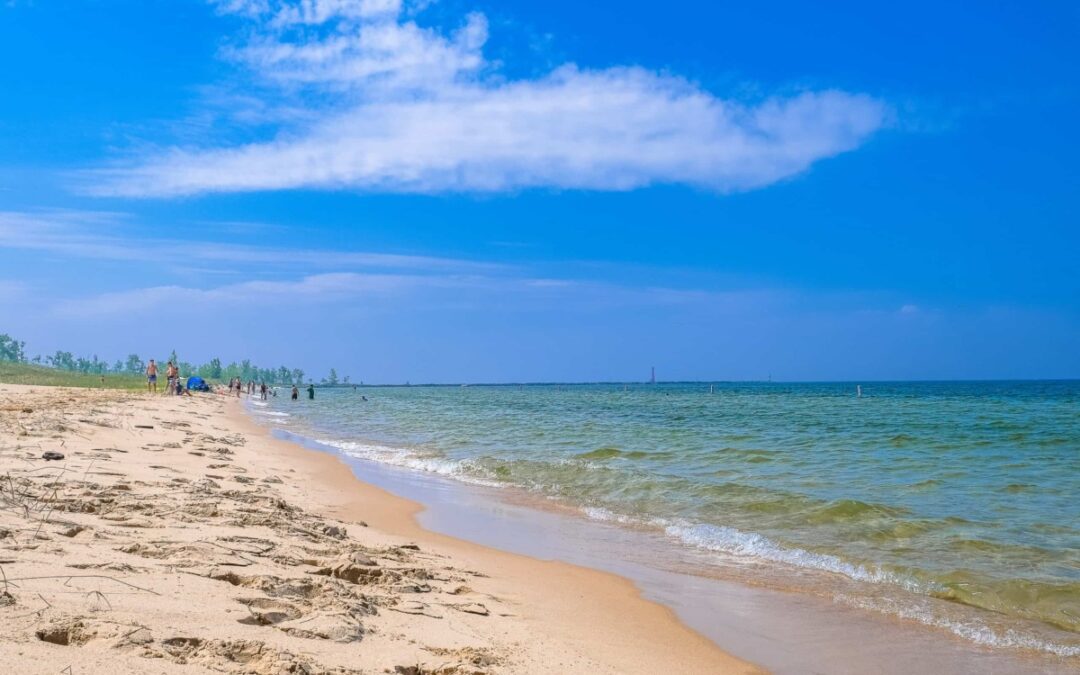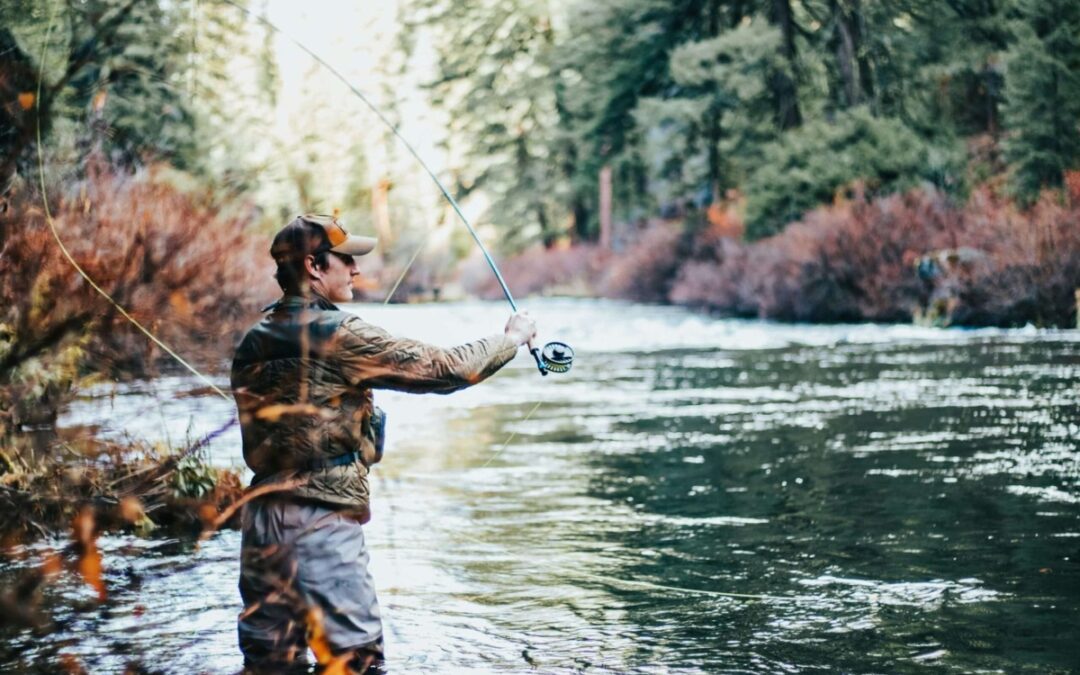
A sea lamprey in an aquarium at the Great Lakes Fishery Commission. Credit Lester Graham/Michigan Public
By Rachel Lewis, Capital News Service
LANSING – The Great Lakes Fishery Commission will receive a $2.1 million grant from the Environmental Protection Agency to address the invasive sea lamprey in the Grand River in Grand Rapids, Michigan.
Sea lampreys are native to the Atlantic Ocean and were brought to Michigan through the Erie Canal over 70 years ago. A single sea lamprey can destroy up to 40 pounds of fish, according to the commission.
U.S. Rep. Debbie Dingell, D-Ann Arbor, is a co-chair of the U.S. House Great Lakes Task Force. “Sea lampreys are highly invasive and are a significant danger to the native fish of the Great Lakes and the entire Great Lakes ecosystem,” Dingell said in a press release.
“The Great Lakes fishery supports billions of dollars in the economy and hundreds of thousands of jobs, and we must protect this critical natural resource,” Dingell said. “We must continue to support their efforts to sustain healthy fish and lakes for generations to come.”
The grant will help fund work on a physical sea lamprey barrier on the Grand River. The commission said the barrier will protect more than 4,000 river miles from sea lamprey.
The chair of the Great Lakes Fishery Commission and the mayor of Troy, Ethan Baker, said the barrier will prevent the sea lamprey from accessing their spawning habitat in the river and prevent already fertilized sea lamprey from entering the Great Lakes.
“That project and this grant will end up saving the Great Lakes Fishery Commission approximately $2 million a year in sea lamprey control with the lampricide product we use,” Baker said. “That’s a huge benefit for the commission, for the Great Lakes fishery as a whole and certainly the taxpayers whose funds are used here.”
The binational commission was created in 1955 by the United States and Canada to stop the spread of the sea lamprey. In the past 70 years, the commission said it has been able to contain the sea lamprey and reduce its population more than 90%.
Baker said the Great Lakes fishery is valued at over $5 billion, and protecting the fish population is vital for the environment and Michigan’s economy.
“Stopping any kind of sea lamprey control would be detrimental, not just to the economy, but to the people who depend on the fish for food and the people who use the lakes for recreation,” he said.
Baker added that the grant and the continued support for eradicating the sea lamprey are important for the health of the Great Lakes.
“It’s vitally important that we take care of our Great Lakes. It’s vitally important that we protect against the invasive sea lamprey, and vitally important that we continue to work together in a bipartisan, binational fashion to ensure that this treasure remains the treasure that it is,” he said.
Rachel Lewis is a newsroom production assistant reporting on the environment through the Great Lakes News Collaborative in partnership with the Mott Foundation, Michigan State University’s Knight Center for Environmental Journalism and Capital News Service. This story was published for Michigan Public.

Scientists seek sources of fecal pollution that can contaminate rivers, close beaches
By Joshua Kim, Capital News Service LANSING – Water quality experts are using DNA tools to track down contamination responsible for beach closures...

Out of the 103 state parks in Michigan, here are the top 10
Get to know the best state parks in Michigan, which offer an abundance of nature-based activities, from hiking and wildlife viewing to beaches and...

No license needed. How to fish for free in Michigan this week
Grab your fishing rods, sandwiches and, maybe, a few friends for a weekend of free fishing, as the state celebrates its second free fishing weekend...

The ultimate guide to backpacking in Michigan
Check out our tips for beginners and experts alike to get you started on backpacking in Michigan this summer. If you're looking to go backpacking in...

Attention, anglers! Here are the 8 best fly fishing spots in Michigan
Get your waders out, because Michigan was voted the best state for fly fishing, and we've got the inside scoop on where to go! Fly fishing...





